Meet Mia Borders, An Embodiment of the New Orleans Soundscape
In the intersection of Freret and Valence, Mia Borders walks out of Mojo Coffee House with an iced brew in hand and sits with a relaxed gait, seemingly in her element. A Friday afternoon buzz weaves between the interview and the street she grew up on, but she appears unphased—an ambulance howls by, a friendly golden pitbull nuzzles her lap, and when a cargo truck knocks a parked truck’s rear view mirror, Mia, while startled, shrugs-it-off, blaming it on the narrow streets of New Orleans.
On the eve of her mastered tracks ready for printing, Mia speaks on New Orleans, being queer, and composing healing elements in her music.
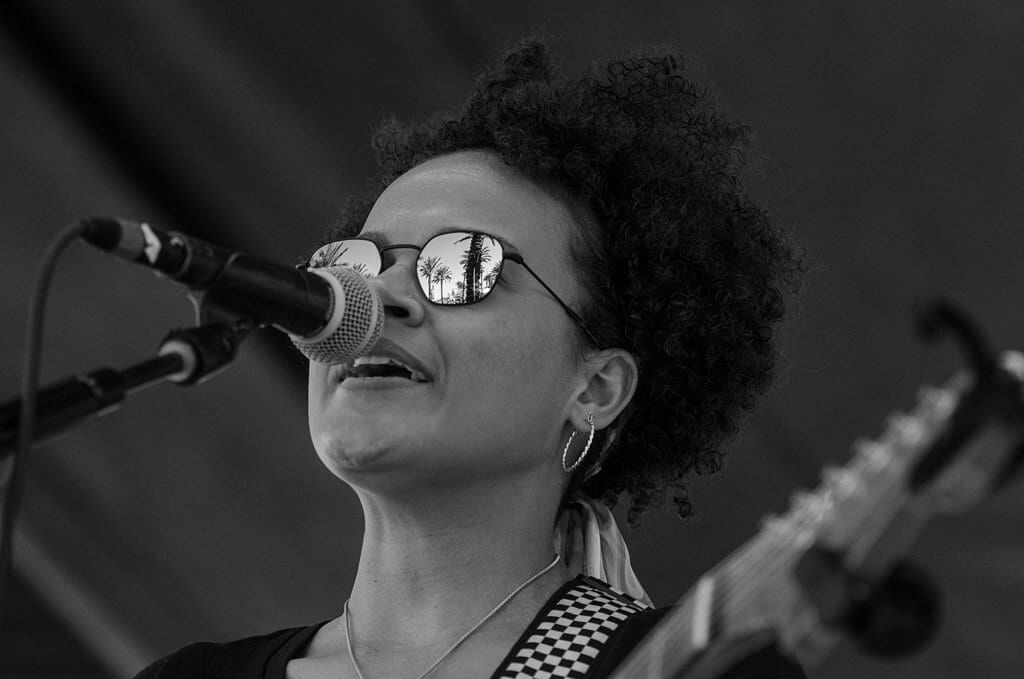
She Shreds: Your new EP, Good Side of Bad, is driven by funky upbeat tunes, but some are breakup songs. How do those reconcile?
I’ve always leaned toward break up songs, just because that’s what I like to listen to. I like to have my headphones on and be depressed in somebody else’s love life. I don’t know why, but it’s worked for Adele, man. But I also like uptempo music. Since the beginning, I’ve been writing uptempo breakup songs. It’s nice to dance it out, you know? And sometimes sit down with your headphones and be like Woah, she said some real shit right there. And I can’t play a show with just a bunch of sad sappy break up songs. I’m not Adele. I can’t pull that shit off. Certainly not.
You’ve mentioned that your songs come from a ‘well of truth.’ Can you elaborate?
I’ve been in some relationships. One in particular, I can’t really stop writing about, which I’ve tried to. Obviously, I’m not emotionally in that space, but it’s so easy to go back and be like I hated you then. So I’m going to write this song based on that because, again, it’s a universal thing. Everybody knows what it’s like to have your heart broken, whether romantically or platonically or familially.
You called it drawing from that “catastrophic relationship.” Is that driven by hindsight?
[Laughs] Yes, nailed it. Mostly, it’s looking back and being like, I did some crazy shit, and I would never do any of that stuff now. On the other hand, I was 19 when that relationship started and 25 when it ended. Just even those six years as a human, you develop so much, and then to be tethered to another person. We’re not growing in the same direction. Why am I still here? And now at 31 looking back, Why did I stay that long? Why did I do that crazy stuff? And sort of connect to other people who may find themselves in a similar situation, saying: Why didn’t I leave way sooner?
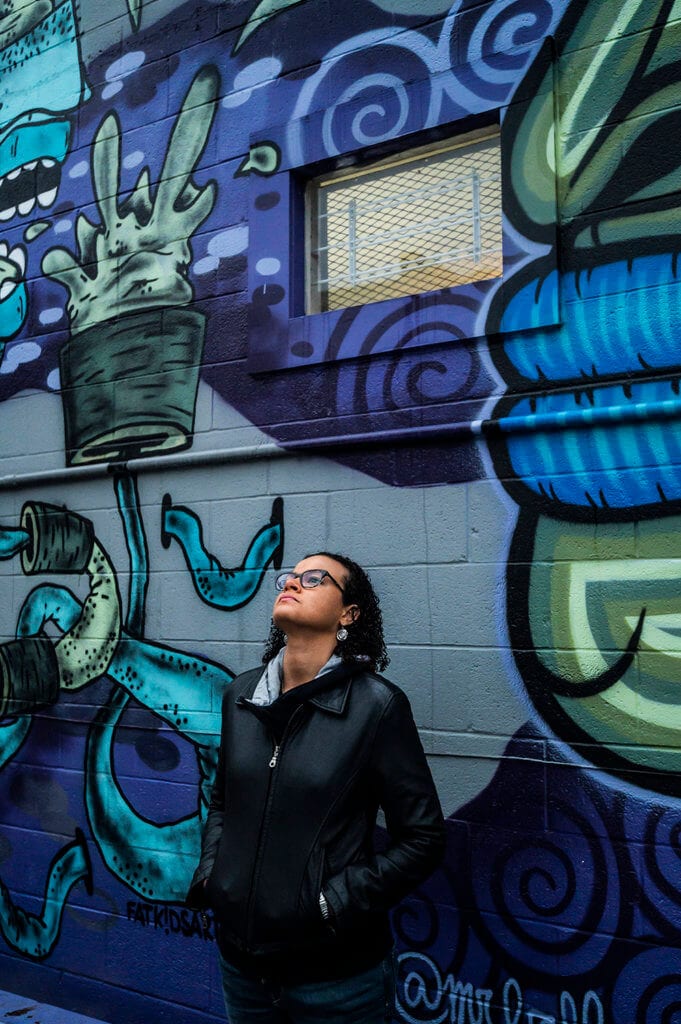
When songwriting, do you pull more from past, present, or future?
I’ve definitely written stuff into existence. I wrote a song about adopting a kid. I haven’t done it yet. It’s still there. I just came across the paperwork that I started filling out five years ago and I was like Oh shit. Definitely wasn’t ready then, still not ready now. And then there is a song on my new EP that I wrote about this really good looking dude that worked at Costco. I just created this whole relationship. I may have gone looking for him yesterday at the other store where I heard he works. So it’s not always the past or the present, maybe that’s the future.
You mentioned that “Goddamn (Strong Black Man)” is also for the African American male.
Yeah, the bridge definitely goes in another direction. My favorite part of it is, Not every good person looks just like you do. And then “Thirsty” is, I believe, right after that one. No, I think there’s something in the middle. I didn’t want to be too obvious.
“Thirsty” is also inspired by Costco bae?
Yes! And just in general. It’s been a minute. It’s at the point, my bassist and I do a duo and if I see anyone who is my type, I look over at my bassist and he’s like, Yeah. I know. Yeah, you right. [Bouts of laughter]
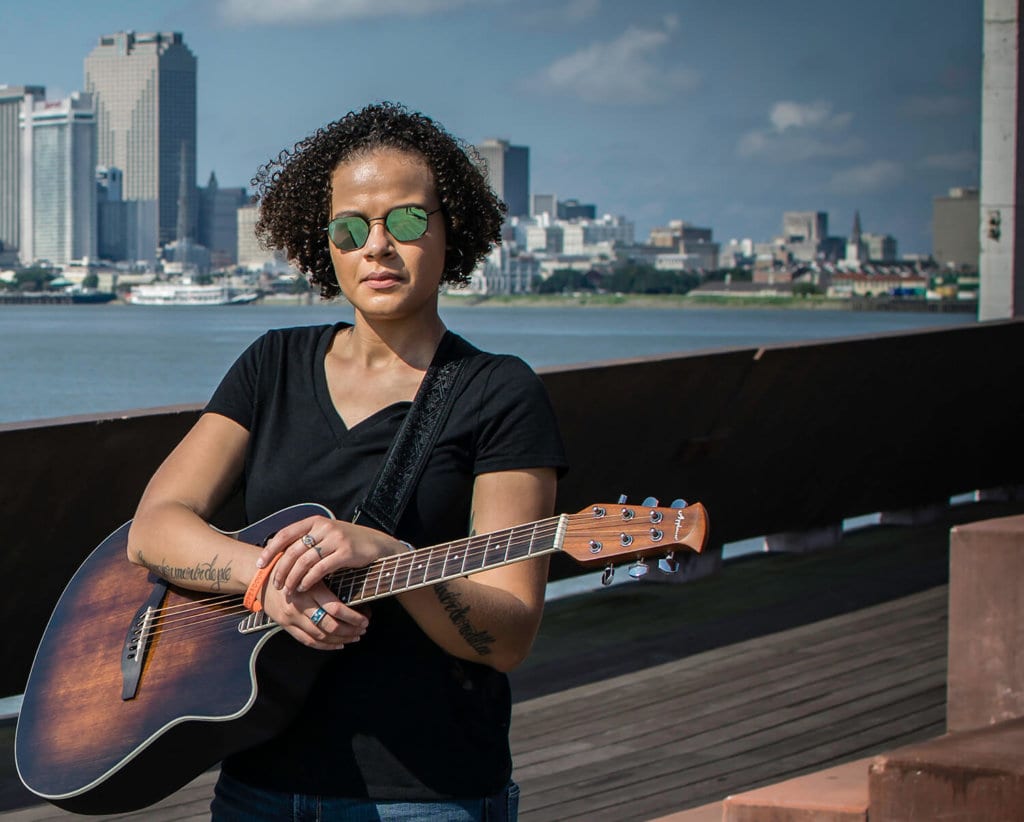
What’s your type?
It depends on the day. Dark skinned black dudes. White boys with buzz cuts and beards. I’m not into the new haircut that’s like a buzz on the side and a lot going on on top. I don’t like that at all. Stop it [humorously deadpans]. And then short brown girls.
I have a bunch of songs with female pronouns and male pronouns. I was talking to a class at Loyola [University] and a queer student asked me what I do, like when I read a crowd [sexual orientation] when it comes to those songs, which is a really good question because she’s in that same position. I definitely do. I had one album that was completely gender neutral and I had a bunch of lesbians fans get mad at me. I’ve always had lesbian fans since day one. I don’t know where they came from. I love them. When we first started out, I wasn’t really open about being a queer person, but they just knew. I don’t know how they knew. But yes, I hear her, let’s throw money at her. But yeah, some don’t appreciate the songs about men and they let me know. And then other people are like, Yes! Get it. Get all of it.
You teach at Loyola University. Can you speak to the importance of music programs?
I grew up learning music in school. It was a huge part of our curriculum. I went to private school, though. It’s definitely faded out more in the public school system, which is a huge bummer. New Orleans is unique in that music is such a huge part of the fabric of our city, so it’s much more difficult for administrations to say we’re not going to teach music anymore. There would be a huge uproar. It taught me discipline more than anything and cooperative behavior more than anything else we [growing up] were doing, like basketball. I don’t care about you [teammates]. I’m trying to get these points for me. I’m trying to break records, which I still hold. To this day!
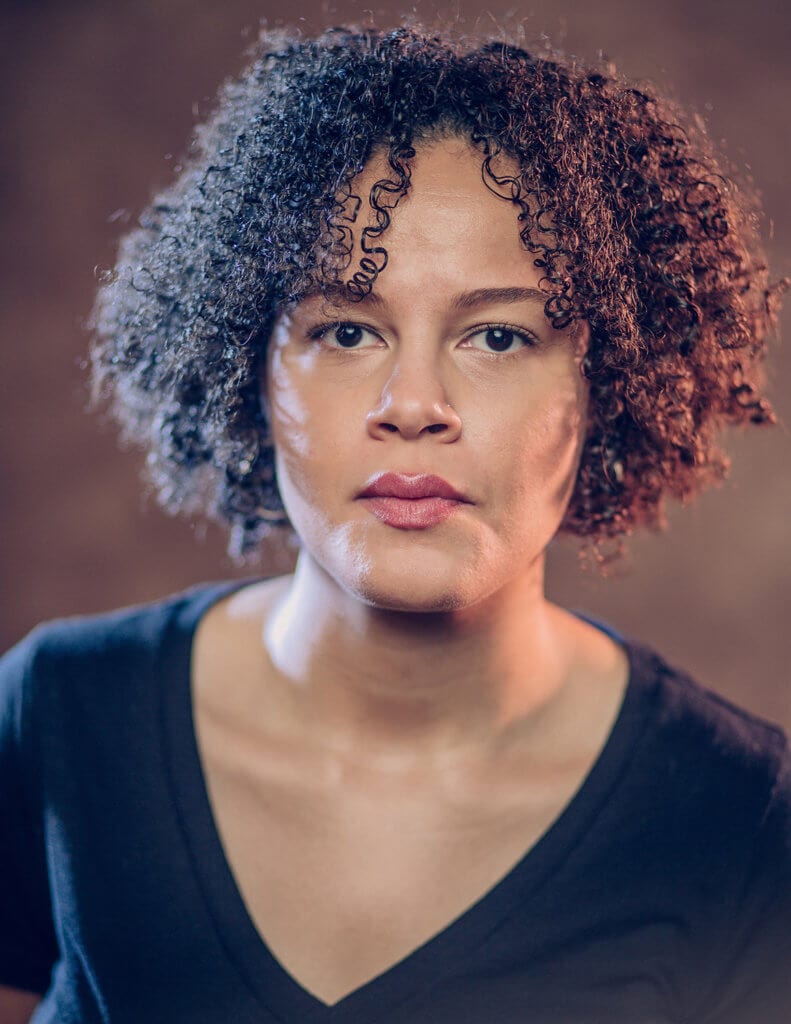
What lessons have you learned as a female artist and what advice would you give female musicians?
Try to ignore the bullshit. I think I’ve gotten as far as I have, which in the grand scheme of things isn’t that far, because I have just been focused on what I’m doing and doing it for myself, and working with people that I trust. That’s a huge part of it. I was fortunate enough to learn that early on. I worked with a weird producer and that forced me to make my own record label because I didn’t like the way he did business. I’m going to protect myself. You have to be selfish sometimes and you have to look out for yourself because in general, whether you are male or female, in the music business nobody is looking out for you unless you can make them money. So that’s just the nature of the beast.
What’s some of that “bullshit”?
I know I don’t get paid as much as other people who play the same slots I do. Money is mostly what comes up. Also, getting bad slots at festivals. There have been a couple of times where I’ve had to put my foot down and say I’m not going to play anymore if you keep giving me shitty slots. That worked once. Other times they’re like, Great, we’ll find somebody else. There is a lot of nepotism and favoritism in the industry. Everybody has a clique that they stay with and those people give each other gigs. At this point, I’m trying to make my own clique.
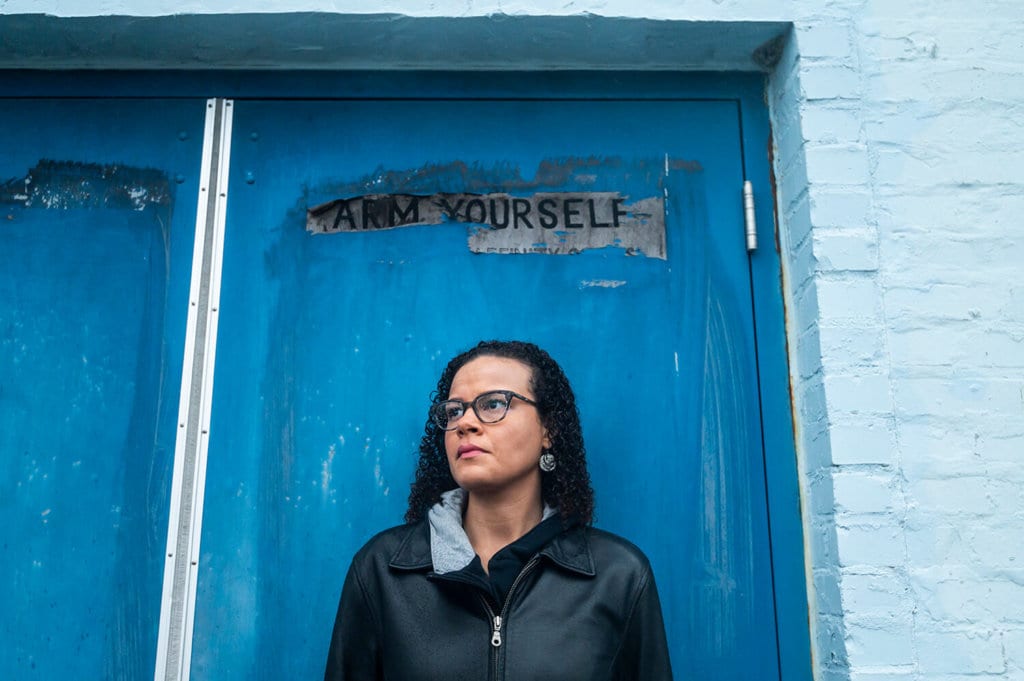
Who’s your clique?
There are a few female artists that I like working with, and if someone approaches me about a gig and I don’t think I’m a good fit, I’ll turn them on to some of my friends. I started up an agency, so hopefully we’ll branch out and represent other women. It’s called Third Coast Entertainment. We need representation.
You’ve mentioned writing yourself out of depression. What’s the importance of music in healing?
Writing has always been an outlet for me. Whether it’s songs, poetry, essays, screenplays even. It’s just a way to get everything out. Whether its conscious or unconscious. This EP was probably more unconscious. Obviously, I knew I was depressed because my grandmother was dying and life was crumbling, but, at the same time, I was just writing music. It didn’t really come together like that until my brother said that I’m on the good side of bad, and I said, Oh, snap! That’s what I just did with my music. I got over that hump. Conscious [writing] was the end of September 2012 when I stopped drinking. So the record that we recorded was after Quarter-Life Crisis [album]. This was [me] very consciously getting myself out of that, and a lot of people related to that record, even if they weren’t sober in that same type of position—this was also a breakup record. And so, a lot of people were able to relate to that, which is always cool. People always tune into songs that I’m not anticipating, which is interesting.
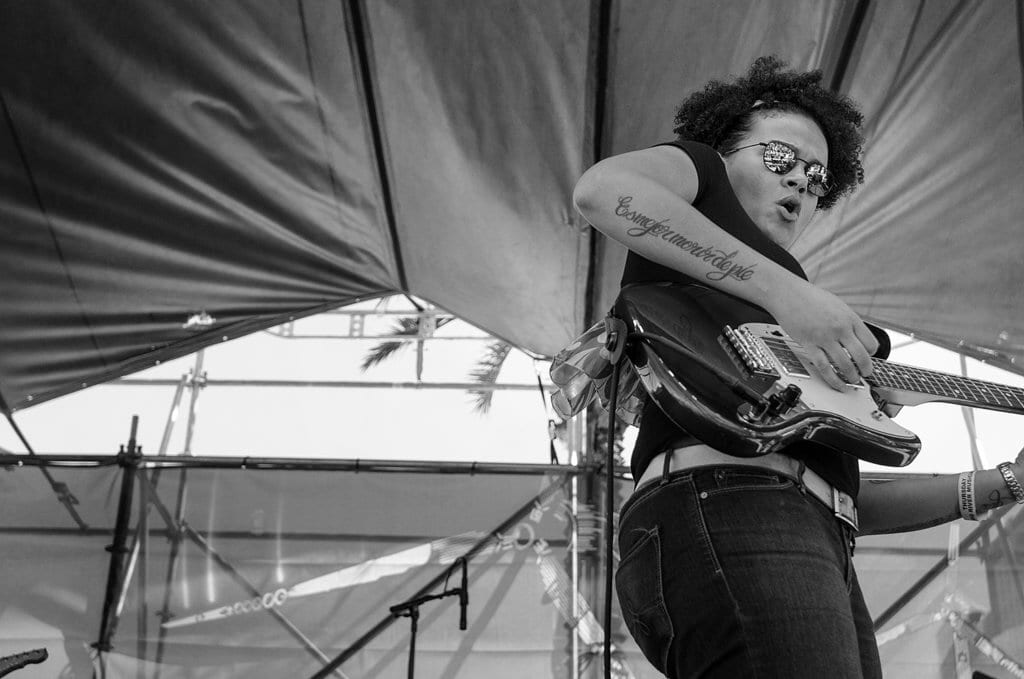
Such as?
There’s one song in my 2010 record Magnolio Blue called “She Don’t Know,” which is another completely made up song about me cheating on a girl with a guy. We were playing in Taos, New Mexico, and on the surface it’s just a really funny song, like I get caught cheating and the horns kind of do a [mimics descending horn sound]. We just have fun with it. Then this woman came up to me after our set and she said it helped her realize that she needed to leave her husband. I was like Woah. She was struggling with her sexuality.
You consider yourself Blaxican. What’s most important about your identity?
I would say I identify by my race or ethnicity before anything else. Mostly because that’s what was always brought to my attention. I went to a predominantly white school and I stuck out. Economically, I also stuck out. I was the only one getting picked up in an Oldsmobile. Classic! Cutlass! That’s probably the root of my insecurity [as a child]. And so then, as I got older I was able to embrace it more on both sides. The black side being in New Orleans and the Mexican side being in El Paso and Juarez. Juarez is rough. El Paso is not.
How does it influence your music?
In reviews, people always comment This is really heavily Latin influenced. Is it? News to me. But all that stuff is constantly in the background. I’m not necessarily thinking that it’s going to be a Latin song, but it comes out that way. I know my favorite key is A minor, which is a super latin key. I have to consciously try to write outside of A minor. It can be fun, it can be sexy, it can be sad. And then on the black side, I love R&B, soul, and hip hop. Black people invented music, let’s be honest. We did it! You’re welcome. I mean, and New Orleans perfected it. Put it down on paper. I wrote a thesis on it. I’m happy to provide that as evidence.
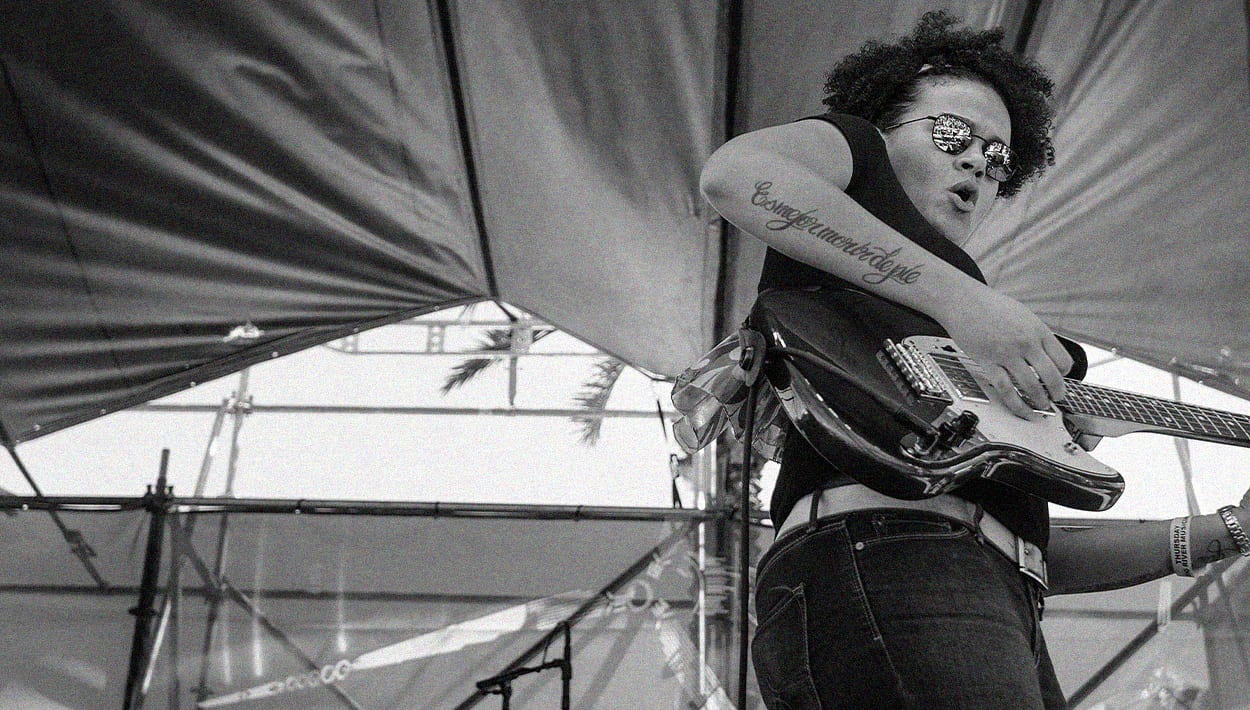

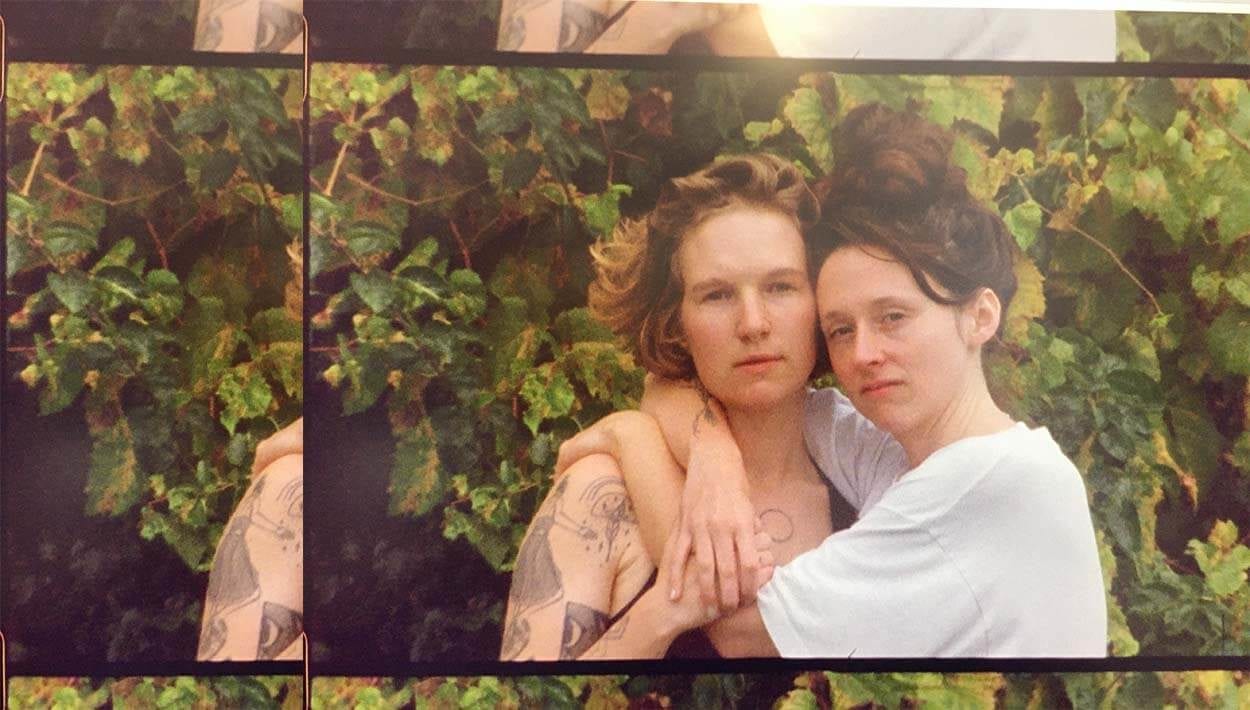
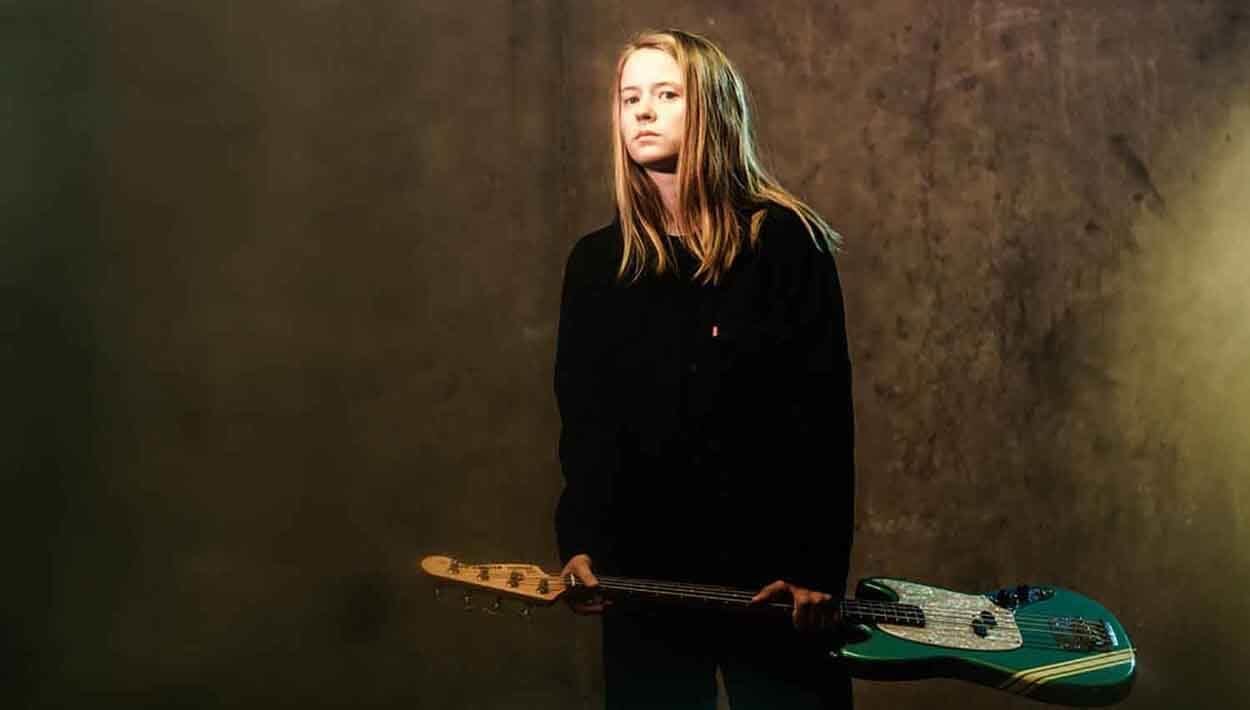
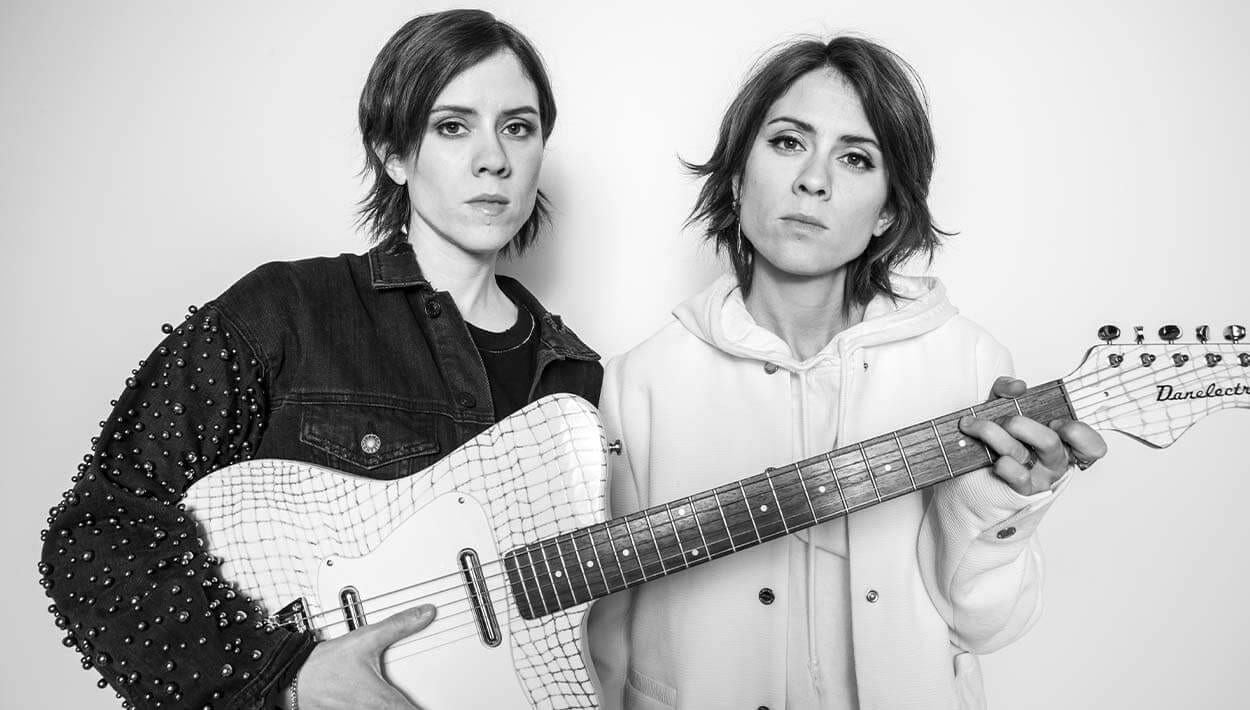
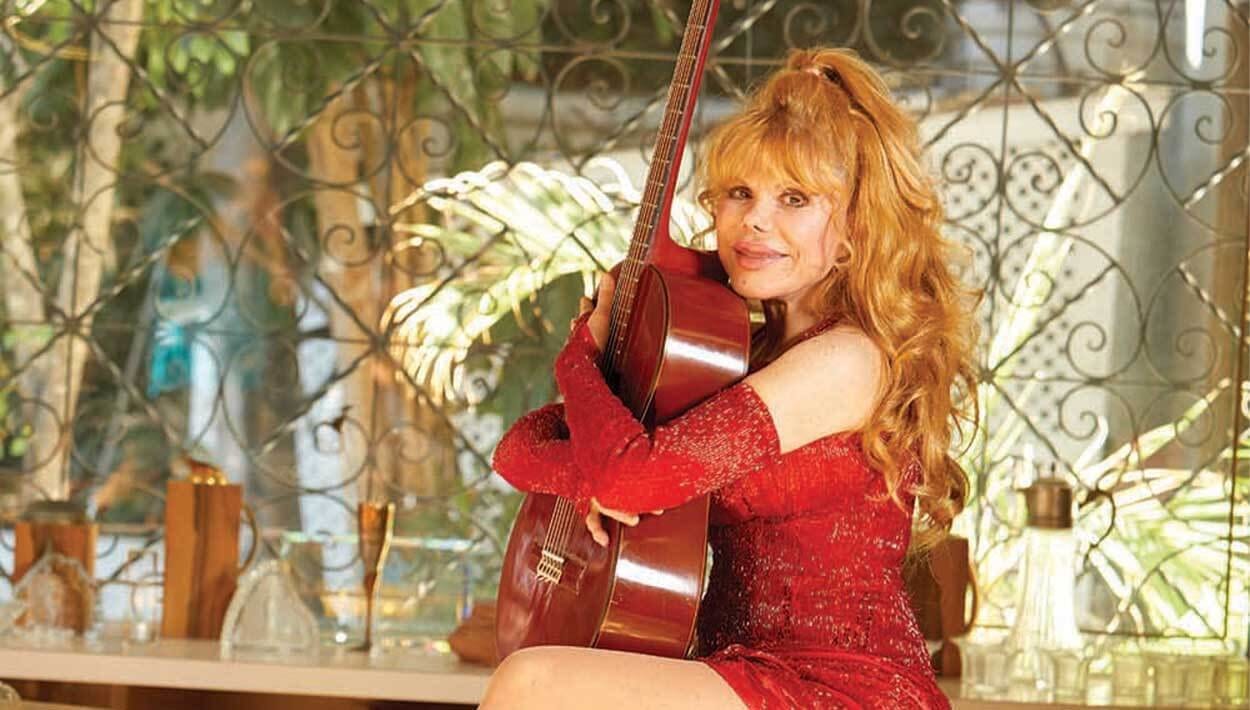
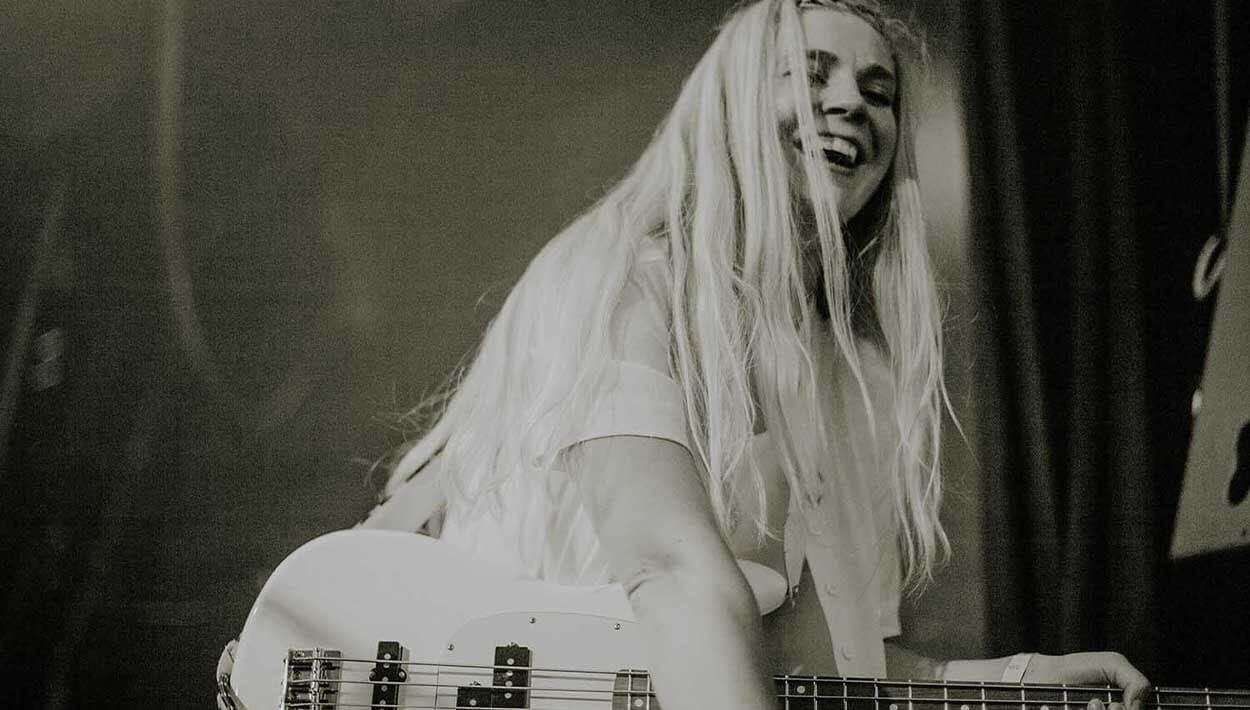
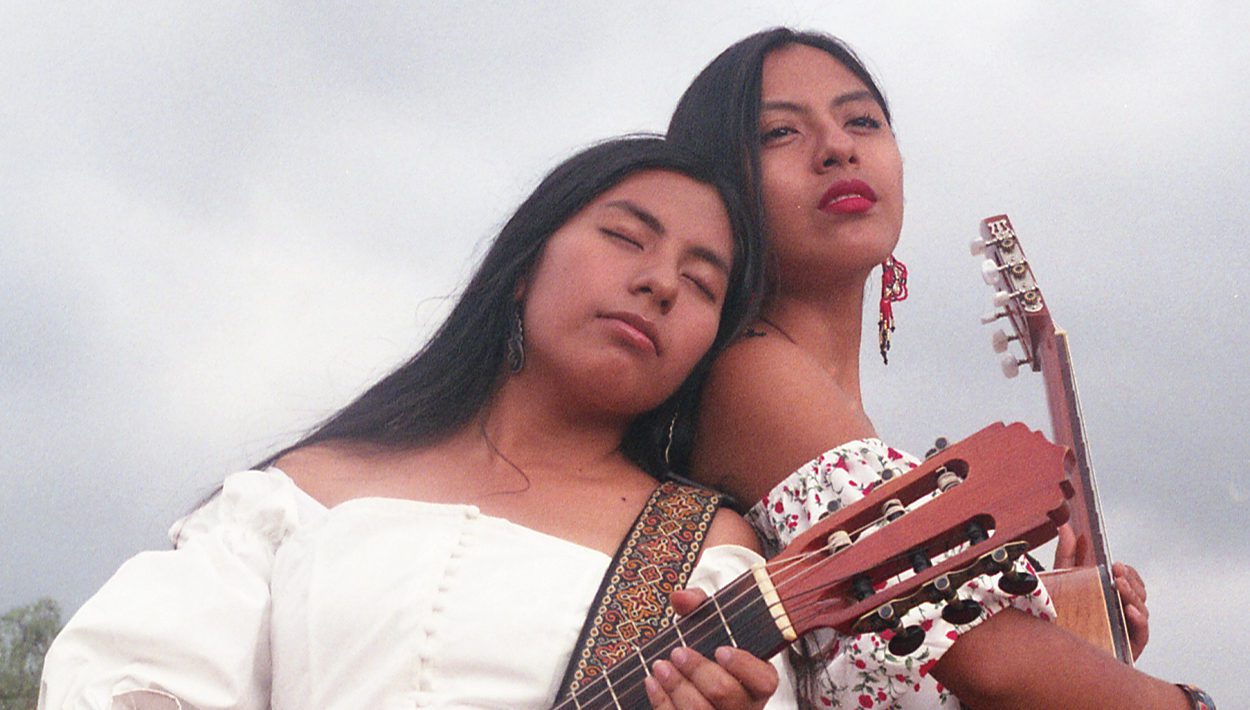
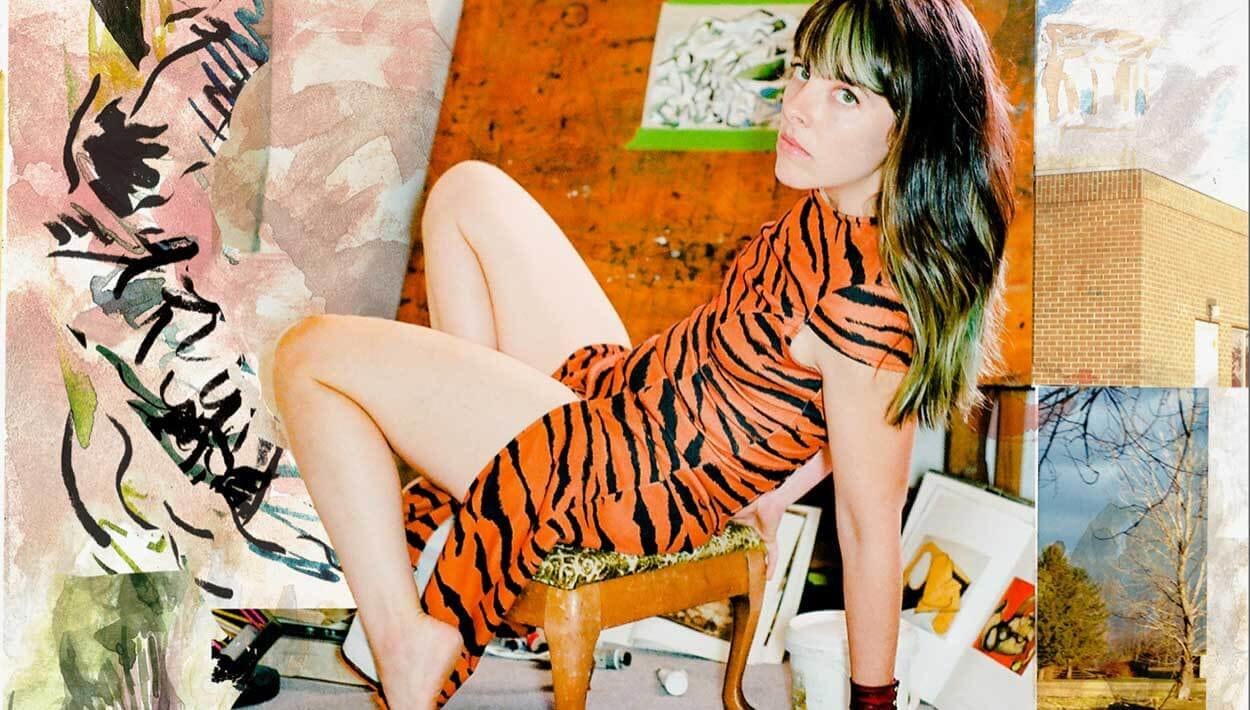
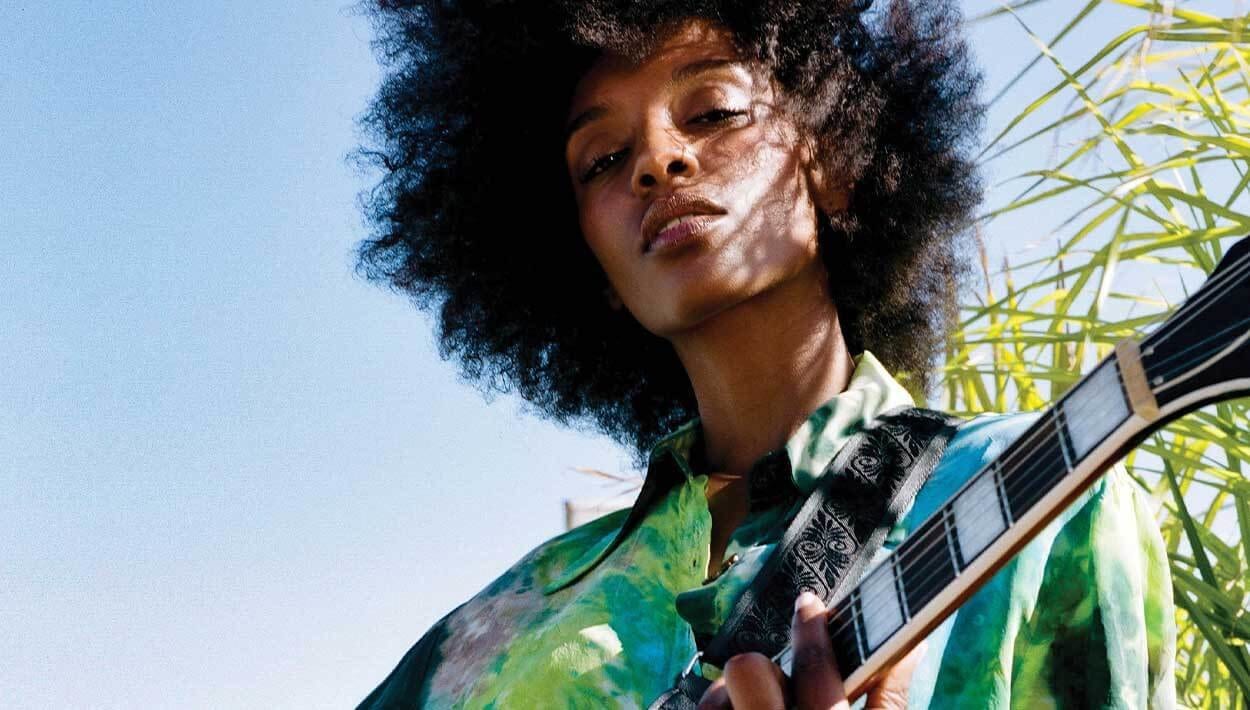
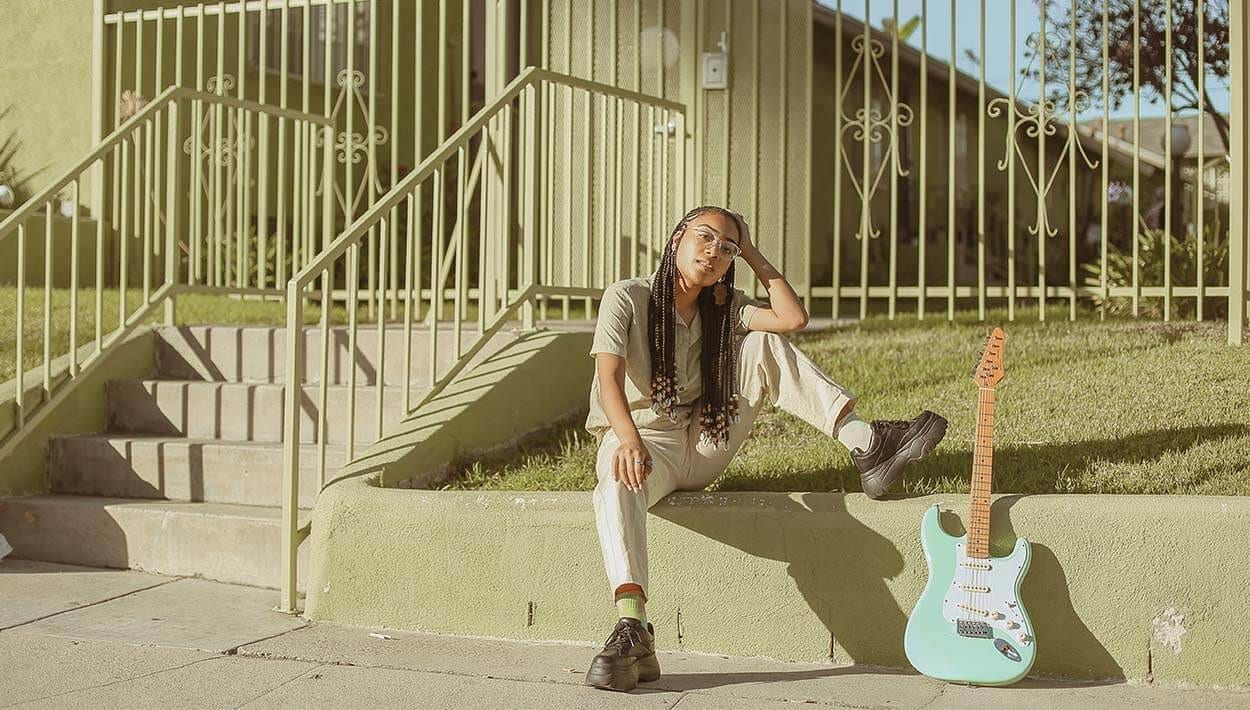
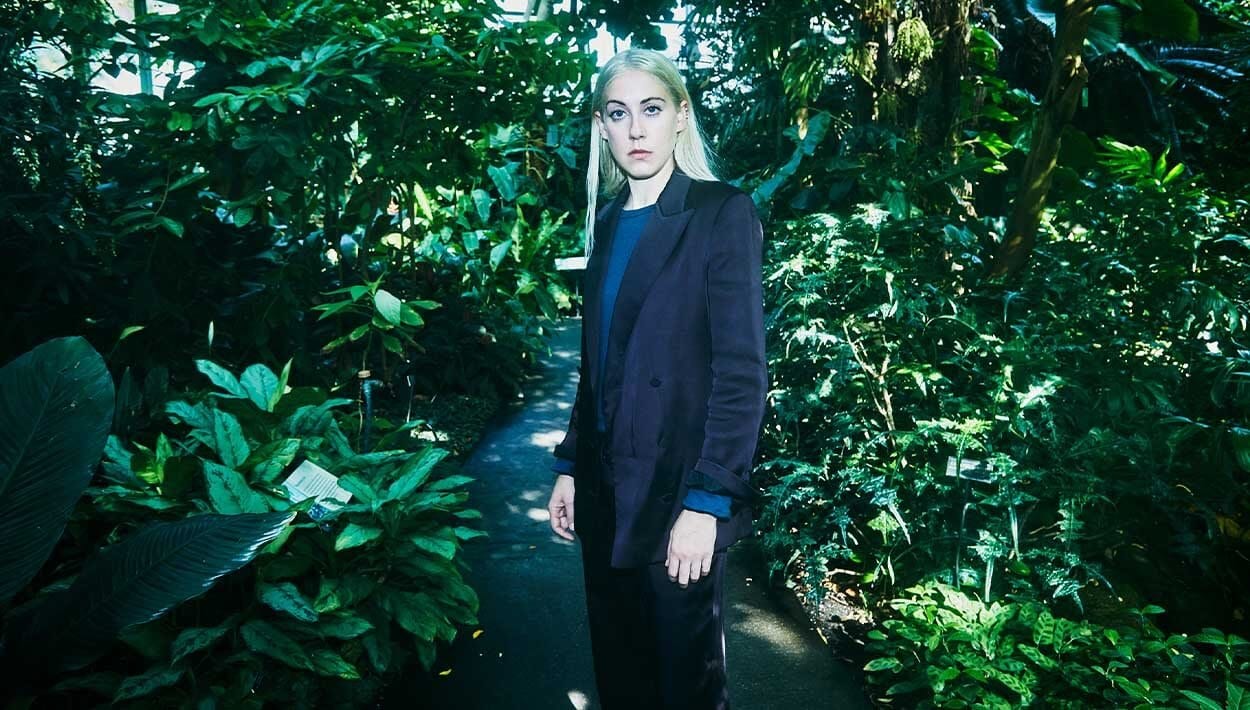


Comments
No comments yet